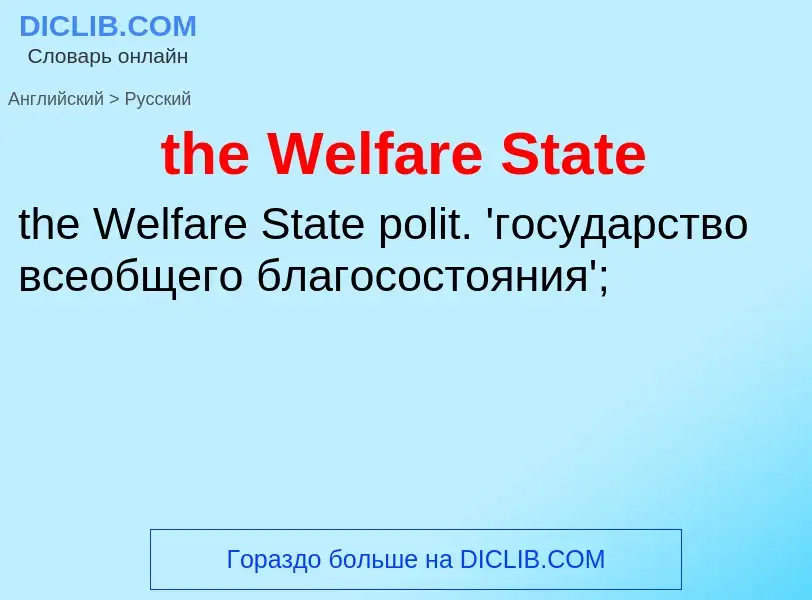Vertaling en analyse van woorden door kunstmatige intelligentie ChatGPT
Op deze pagina kunt u een gedetailleerde analyse krijgen van een woord of zin, geproduceerd met behulp van de beste kunstmatige intelligentietechnologie tot nu toe:
- hoe het woord wordt gebruikt
- gebruiksfrequentie
- het wordt vaker gebruikt in mondelinge of schriftelijke toespraken
- opties voor woordvertaling
- Gebruiksvoorbeelden (meerdere zinnen met vertaling)
- etymologie
welfare state - vertaling naar Engels
политический термин
'государство всеобщего благосостояния'
[,welfɛə'steɪt]
общая лексика
"государство всеобщего благоденствия" (термин, применяемый для характеристики некоторых развитых капиталистических стран, в т.ч. Великобритании)
политический термин
«государство всеобщего благосостояния» (с системой социального обеспечения, бесплатным обучением и т. п.)
Definitie
Wikipedia
A welfare state is a form of government in which the state (or a well-established network of social institutions) protects and promotes the economic and social well-being of its citizens, based upon the principles of equal opportunity, equitable distribution of wealth, and public responsibility for citizens unable to avail themselves of the minimal provisions for a good life.
There is substantial variability in the form and trajectory of the welfare state across countries and regions. All welfare states entail some degree of private-public partnerships wherein the administration and delivery of at least some welfare programmes occurs through private entities. Welfare state services are also provided at varying territorial levels of government.
Early features of the welfare state, such as public pensions and social insurance, developed from the 1880s onwards in industrializing Western countries. World War I, the Great Depression, and World War II have been characterized as important events that ushered in expansions of the welfare state. The fullest forms of the welfare state were developed after World War II.

